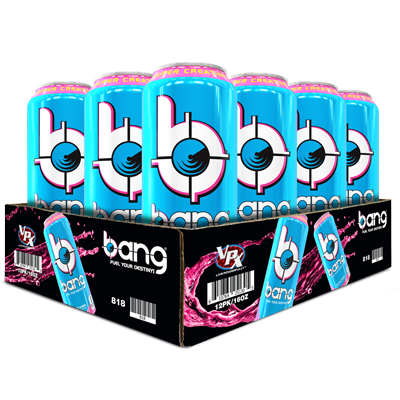A class-action lawsuit was filed against VPX Sports and its founder for allegedly falsely advertising Bang® energy drinks. Among other things, the complaint which was originally filed in September 2018 and later amended in November 2018, alleges that:
- The company represents that the ingredients in the energy drinks – specifically, Super Creatine, Branched Amino Acids (or BCAAs), Ultra Coenzyme Q10, and caffeine – provide “Potent Brain and Body Fuel” that can “reverse mental retardation” and cure Alzheimer’s disease and other forms of dementia when such claims are false;
- The company represents that the drinks contain a new compound called “Super Creatine” that is allegedly 20 times more effective at reaching the brain than regular creatine when, according to the plaintiffs, there is no such thing as “Super Creatine” and the ingredient that the company calls “Super Creatine” is really creatyl L-leucine, which is not creatine at all;
- The drinks either do not contain any creatine, creatyl L-leucine, BCAAs, and Coenzyme Q10 or contain such small amounts of the ingredients that they do not have any effect on cognition, physical performance, or the human body;
- The company claims that the drinks contain “ultra” coenzyme Q10 when such an ingredient does not exist;
- The drinks do not contain the advertised amount of caffeine;
- The company deceptively presents itself as a pharmaceutical company in order to give consumers the impression that its claims have medical and scientific support; and
- The company claims to have scientific support but it does not identify any published peer-reviewed study on its website.
(Imran et al v. Vital Pharmaceuticals, Inc. d/b/a VPX Sports and John Owoc aka Jack Owoc, Case No. 18-cv-5758, N. D. CA.)
